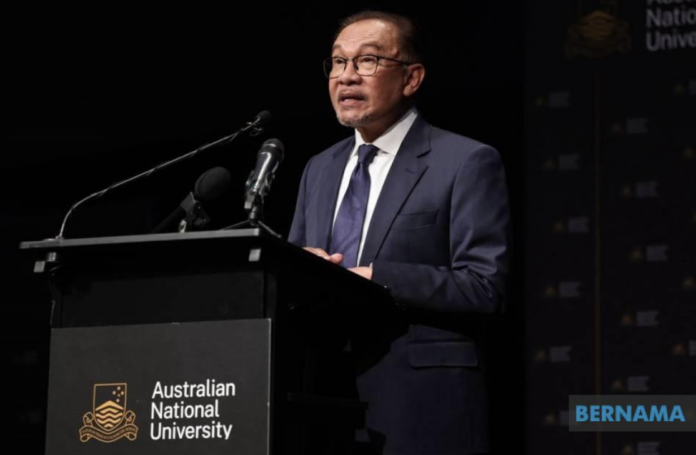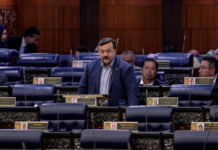CANBERRA, March 7 – As chair of ASEAN in 2025, Malaysia will attempt to breathe new life into ASEAN-led forums to achieve “something of consequence”, says Prime Minister Datuk Seri Anwar Ibrahim.
Anwar, who is also the Finance Minister, said that for Malaysia, the forums included the East Asia Summit, the ASEAN Regional Forum and the ASEAN Defence Minister’s Meeting (ADMM)-Plus.
“The path ahead will not be easy. A degree of inertia has unfortunately set in, and there’s a deep-seated conservatism, an assumption that little can be done.
“But this is not the moment to be fainthearted. I believe that, with enough will and support from our partners, we will be able to achieve something of consequence,” he said in his public lecture at the 2024 Gareth Evans Oration entitled “Navigating Geopolitical Currents: Malaysia and Australia’s pivotal role in Asia Pacific” at the Australian National University (ANU) here Thursday, attended by more than 500 students.
According to Anwar, there is bound to be cynicism about the value of ASEAN in a more divided region, but it is precisely when chasms are growing that the world needs to double down on ASEAN.
“Without it, the region will be principally dictated by the calculations and designs of the major powers, unfettered by the need to account for a more diverse range of interests and viewpoints,” he said.
Anwar said that for Malaysia, ASEAN acts as a multiplier, an indispensable platform for the countries of Southeast Asia to exercise their agency.
“Irrelevance, decay or reversal are not acceptable options. ASEAN’s advancement is at the core of our strategic interests,” he pointed out.
Meanwhile, in terms of efforts to reduce carbon footprint, Anwar said Australia, Malaysia and ASEAN countries must strategically plan to adapt to rising sea levels, heat waves and disrupted water cycles to enhance climate resilience while safeguarding investments in low-carbon transitions.
“Now, as reducing emissions is only one side of the coin, planning to adapt to the impacts of climate change is therefore imperative,” he said.
Anwar said Malaysia, being an oil and gas producing nation, is dedicated to achieving net-zero emissions by as early as 2050 and fulfilling its commitment to the Paris Agreement, although the country contributed less than one per cent to global greenhouse gas emissions.
“We have set ambitious targets to support the energy transition, including a 70 per cent share of renewable electricity capacity by 2050, a substantial increase from the current level of 25 per cent,” said Anwar.
















